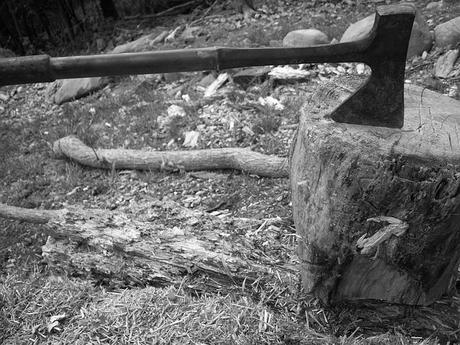According to the United Nation’s Food and Agriculture Organization (FAO), the 33 million acres of forestland that are lost annually around the globe are responsible for 20% of human-caused greenhouse gas emissions. The main causes for deforestation include wood and paper products, mining and oil exploitation, urbanization, acid rain and wildfires. Other reasons include supplying wood timber for wood and paper products and clear land for crops, cattle and housing.
Trees are being destroyed at an alarming rate. More and more businessman are pushing through forests to gain land for industrial or commercial purposes. Environment is being sacrificed for the sake of profit. Deforestation can have serious effects on air and water pollution, climate change, soil erosion, loss of biodiversity.
As an individual or part of the global community, you can at-least plant a tree to combat deforestation. You can take one step further by the choices you make throughout the day when we’re shopping, eating, or even driving. One small step by you, leads to twenty or more giant leaps towards a global campaign against deforestation.

Here are 15+ phenomenal ways that you can do to stop or prevent deforestation.
1. Begin by hugging a tree. It’s that easy. This is the quickest way to appreciate the important part it plays in your life.
2. And start planting trees. That’s the sum of the domestic campaign so far. Soon, all the neighbors will be carbon copying each other.
3. Also stop printing and go paperless. Whether at home or at work, many of us still have that nasty, lazy habit of not learning to utilize computer files and folders properly. So instead, we print. And, you know what; many of us do this when we think others are not looking. So, there you go. You know it’s wrong.
4. When shopping, move towards buying recycled products mainly. Most recycled items do not derive from areas that have been cleared of natural and rainforests.
5. When at home, recycle as much as possible. By extension, you are continuing with your proactive exercise in diverting the demand for clearing land.
6. In the kitchen, cut down on your meat intake and eat as many vegetarian meals as possible. It’s a best practice and a healthy one on top of it too. Because it remains problematic and time-consuming trying to source meat products that are entirely devoid of being harvested on land that once brimmed with trees.
7. Speaking of meat, do not buy meat products sourced from land where forests have been cleared. At this stage, if you’re prepared to go the whole hog, if you will, you’ll need to spend extra care and time perusing the product’s labels. Also, you’re going to need to extend your knowledge on the multinational companies that produce these pre-packaged supermarket items.
8. To get these things right, your shopping for recycled and sustainable products and your meat products, vigorously check the labels of each item you pick up. A much safer alternative and time-saving effort entails simply buying organic products instead. But avoid the multinationals that have pretentiously jumped onto the organic bandwagon, mainly to drive sales.
9. Palm oil is a type of edible vegetable oil that is derived from the palm fruit, grown on the African oil palm tree. According to the World Wildlife Fund, an area the equivalent size of 300 football fields of rainforest is cleared each hour to make way for palm oil production. About 85% of all palm oil globally produced and exported from Indonesia and Malaysia; but most of the time not using sustainable measures. Unless there’s concrete proof that it’s been sustainably produced, do not buy palm oil at all.
10. Do not use firewood to heat up your fireplaces. It takes few hours to burn the firewood but takes years to grow a single tree. Live in such a way that your activities cause minimum impact on the environment.
11. Encourage people to live in a way that doesn’t hurt environment. Try to bring in more people in your community and let them know about how trees are being destroyed at an alarming rate and what steps we need to take to minimize our carbon footprint on the environment.
12. Returning to the meat and grocery shopping list, do not buy anything from large, multinationals that are actively or indirectly involved or responsible for the clearing of forest land. Shortly we’ll be emphasizing the importance of broadening your knowledge on which companies are guilty. You will be surprised to learn that within a matter of minutes, you’ll unmask them. Globally, active campaigners and NGO’s have already published on the internet which companies are still responsible for clearing forests. They’ll also enlighten you on the progress being made to reverse this.
13. Support companies that produce products by causing minimal harm to the environment. To improve your prospects of being able to make informed decisions about these companies and the many other items listed in this article, don’t forget to read and research extensively. The deeper you dig, the more information you’ll unearth. At the same time, you’ll also be learning how to reach out effectively, seeing that you’ll soon know how everything is interrelated.
For instance, you’ll learn about the importance of preserving, promoting and elevating indigenous communities to their rightful place of prominence. You’ll also learn how much more sense it makes to grant them access to land which was inherently taken away from them to begin with. And you’ll appreciate that your indigenous compatriots know how to make better use of it without damaging the forests.
14. In the process, you also need to practice what you preach; both publicly and within the confines of your home where no-one can see you. It’s hard and it will take time. But, getting used to the idea and you’re already off to a good start.
Imagine always feeling guilty whenever you go to the supermarket, knowing well that you’ve just bought something you had no business buying anyway. That’s the positive side of our human condition. It’s good to have a guilty conscience. Let the heart speak for itself.

15. Becoming the dearly beloved treehugger does not end with merely hugging a tree a day and planting a few trees every other year. You still need to become actively involved. Your research will lead you to the world’s most prominent eco-NGOs specifically focused on campaigning and working against deforestation. Also, it’s quite easy to become a member too.
16. Work with NGO’s to establish parks to protect rainforests and wildlife. Become directly involved in more ways than one by signing up as a member of Friends of the Earth.
17. On a much larger, political and/or corporate scale, it would be ideal to become a serving member of the World Wide Fund for Nature.
It was always going to be a challenge giving new readers a refreshingly new look at how deforestation can and should be stopped in its tracks. But refreshingly, doing this makes it all easier for readers who are still not yet up to date on just how extensively their everyday lives have a dramatic effect on the world’s rainforests.
But by now, the message should be loud and clear. It’s time to get proactive. It’s time to get involved. Not tomorrow. Today. And that’s an encouraging way to close this article, isn’t it? No-one needs to be overwhelmed. All they need to do is start with the small things in nature’s garden. Begin with your own, newly planted tree. Oh heck, you may as well chase Kitty down from the tree as well. After all, those squirrels and birds have vital roles to play in our eco-systems too.

